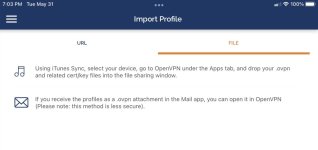testing123
Regular Contributor
Not sure why I didn't think of the VPN in this case. As to the 'ancient' windows, in Win 11, does MS finally provide a way to turn off all data collection?VPN is definitely the preferred option. Enabling UPnP on your router could lead to a world of hurt if you run one of the many popular NAS boxes (search qlocker and deadbolt ransomware) or many other systems that exploit it.
With a VPN, you only have to have trust in the VPN software, and only have 1 thing to keep up to date. Much better than trusting other parties (blue iris), IMO.
Kinda funny you are worried about being secure, but running ancient operating systems. Yet another reason why a VPN would be a better option than port forwarding, and UPnP.
Is it better to run the vpn through the router or OK to run it on the machine itself? The latter would be simpler here.



